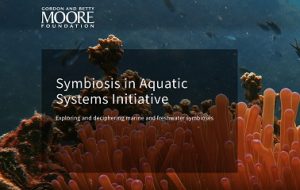We are currently looking for two motivated postdoctoral students who wish to join the Bapteste/Lopez lab in 2021/2022/2023.

First, we have funding by the Gordon and Betty Moore Foundation for a 2 years long postdoc in evolutionary bioinformatics, starting in September 2021, to develop generic bioinformatic tools to identify gene remodelling and co-expression changes during the first steps of primary photo-endosymbioses, i.e. when cyanobacteria start living within an eukaryotic host (https://www.moore.org/grant-detail?grantId=GBMF9319). Primary photosynthetic eukaryotes independently evolved twice from aquatic symbioses involving eukaryotic microbes that assimilated with cyanobacteria, first at the origins of Archaeplastida (>1 billion years ago), and second at the origin of Paulinella spp. (~100 million years ago). Primary photoendosymbioses have significant evolutionary and ecological importances as they introduce new lineages of photoautotrophs into biogeochemical cycles. Yet our knowledge of primary photoendosymbioses remains very limited, in particular the complexity of their first steps of primary photoendosymbioses, which might be governed by principles that impose strong barriers to the establishment of stable interactions. Importantly, these first steps and their constraints are impossible to investigate using current approaches. Significant barriers to understanding the early evolution of aquatic photosynthetic eukaryotes have been the inherent limitations of mainstream approaches to address cryptic processes of the distant past. Phylogenetics and phylogenomics have drawbacks associated with the erosion of phylogenetic signal and the loss and lateral transfer of genes, while current models (e.g., Paramecium bursaria) already have a co-evolutionary history with a photosynthetic endosymbiont and, hence, they are limited in providing information about the early stages of photoendosymbiosis. To overcome these barriers, the Bapteste/Lopez lab is involved in an international collaborative project, which relies on a combination of synthetic biology and of evolutionary biology. Thus, in Australia, Dr. Llorente, a synthetic biologist, will use already established methods to introduce cyanobacteria (Synechocystis PCC6803 and Synechococcus elongatus PCC7942) inside eukaryotic cells (Dictyostelium discoideum and Saccharomyces cerevisiae) to develop synthetic photoendosymbiosis models consisting of cyanobacteria living inside eukaryotic host cells, and to isolate synthetic symbionts, and generate molecular data. Then, a postdoctoral fellow hired in the Bapteste/Lopez lab will develop new bioinformatic approaches to investigate these molecular data and characterize processes associated with the first steps of photoendosymbiosis. Namely, he/she will develop the framework of bipartite gene families-genomes networks to produce generic detection methods of endosymbiotic gene transfers. He/she will develop the framework of sequence similarity networks to detect gene creation via remodeling, including novel genes emerging from chimeric associations of host-endosymbiont genetic information, from overprinting and from shuffling within the host and endosymbiont genomes. Finally, he/she will also develop the framework of gene co-expression networks to characterize the functional integration of host-endosymbiont genetic processes, based on transcriptomes generated before and after endosymbiosis.
Second, we also would like to get in touch with potential great postdocs, who might be motivated to study evolution from a systemic perspective, using comparative approaches of interaction networks. These students should be motivated by working in Paris, and willing to apply to a grant to get funding to work within our lab.
Third, we are currently looking for a PhD candidate on the following subject :’Network analyses of the dynamics of microbial associations in ageing hosts to characterize the principles of organization of the ageing host–microbiome collective with novel topological explanations‘. Animal ageing is connected to the development of its microbial communities, as host–associated microbiomes contribute to the inflamm–ageing and to the ageing of their hosts. However, evolutionary explanations of the role played by the microbiome in host ageing and the role played by the ageing host on the evolution of its own microbial communities are lacking, because the main evolutionary theories of ageing, namely the Mutation Accumulation theory by Medawar, the Antagonistic Pleiotropy theory by Williams and the Disposable Soma Theory by Kirkwood, have been developed within a classic population genetics framework, in which interspecific interactions, such as hosts and microbiomes interactions, are not explicitly modeled. Importantly, all these theories postulate that the strength of natural selection acting upon a host decreases with time, a selection shadow, which, by progressively altering the normal functioning of the ageing host, should alter the selection exerted by the ageing host on its microbiome. Yet, if the selection imposed by an ageing host decreases, the host–associated microbiome could progressively emancipate from the guardianship of its host, resulting in a functional disintegration of the ageing host–microbiome collective. This ‘host selection shadow hypothesis’ is currently not integrated in the classic evolutionary theories of ageing. Precisely, this project, at the interface of bioinformatics, evolutionary biology and philosophy of science will analyze how, why and which host–microbiome interactions may contribute to host ageing. This project is due to start in October 2022.
If you think you might know the right people (and maybe that person even is you!), please send a mail and a resume to eric.bapteste@sorbonne-universite.fr or philippe.lopez@sorbonne-universite.fr.
